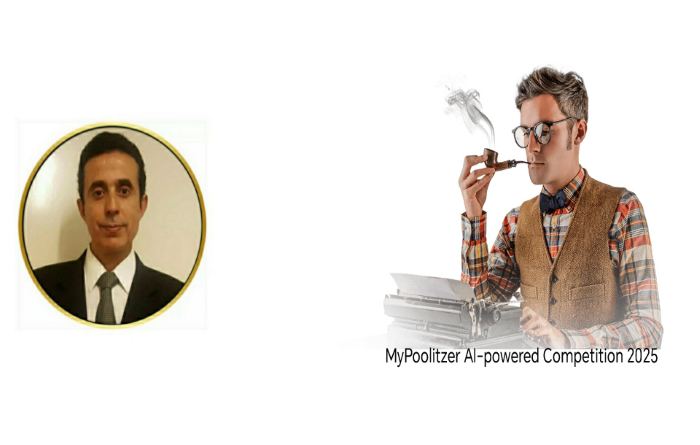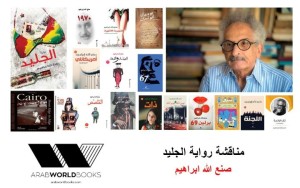To understand subjectivity in literary awards, think of writing competitions as social media platforms and judging panels as their users. A novel is like a controversial post you share—some praise its ideas, others reject them; some find it inspiring, others provoking. It may feel timely to some, irrelevant to others; tragic to some, laughable to the rest—so never place too much notice on these judgments. Literary awards judgments have always been subjective, shaped by individual taste, interpretation, and opinion. What moves one judge may leave another indifferent. External factors like politics, cultural backgrounds, identity, nationality, and personal interests can also influence the decision. This raises questions about the credibility of such awards and the reliability of their outcomes. Can science and technology offer a more objective and reliable way of evaluating literary works?
Structure
Judges evaluate narrative structure by looking at how well a story is organized and how its elements, including the plot, flow of events, and transitions, function together. This structure should be consistent throughout the work, as highlighted by Swedish novelist, critic, and member of the Swedish Academy, Ellen Mattson, who emphasised the importance of a well-balanced “development that lasts through books, all of their books.” However, personal preferences and experiences can affect a judge’s perception of what constitutes excellent structure, leading to different evaluations. Judges may also misunderstand the author’s intent, especially in complex narratives. They may struggle to accurately compare multiple submissions and determine which one has the most balanced structure.
Language
When asked, “What criteria do you use to choose Nobel Prize laureates?”, Mattson replied, “It’s all about quality. Literary quality, of course. The winner needs to be someone who writes excellent literature.”
To produce excellent literature, a writer needs to demonstrate an excellent mastery of grammar, style, and literary devices such as metaphor, simile, imagery, personification, alliteration, foreshadowing, irony, symbolism, allegory, and hyperbole. Human judges may struggle to detect them, and some may struggle to differentiate between them. They may also lack mastery of the language or grammar. The BBC quoted Ms. Phillips, head of St Catherine’s in Surrey, saying, “Many of our brightest, most enthusiastic teachers have little or no grounding in English language or grammar.”
Originality
In her article titled ‘What Makes a Novel Beautiful? Here Are Six Criteria for Great Literature’, Madeleine Rose Jones defines originality as “found in the way a novel reinvents what has already been done, combining form, structure, and theme in a way that surprises and challenges the reader.” Judges look for innovative storytelling techniques that can set a book apart. However, determining originality and authenticity can be difficult for human judges. There have been multiple cases highlighting difficulties in identifying deception and detecting faults. For example, in 1995, Helen Demidenko won Australia's prestigious Miles Franklin Award for The Hand That Signed the Paper, a novel about a Ukrainian family during the Holocaust. Demidenko claimed Ukrainian heritage to lend authenticity to her work, but it was later revealed that she was actually Helen Darville, of British descent. This revelation sparked significant controversy over issues of authorial identity and authenticity in literature.
Emotional Impact
Judges consider how the narrative might impact readers emotionally. They consider whether the work arouses feelings of sorrow, anger, happiness, or sympathy. Madeleine Rose Jones considers emotion a critical element of the beauty of a novel: "We do not turn to literature for a dour experience but for greater clarity into the many haunting emotions of mankind. From Dostoevsky’s The Brothers Karamazov to the terrifying streets of Paris in A Tale of Two Cities, emotion is crucial to the reading experience.
But emotional responses vary from one individual to another. A story that impresses one judge may leave another totally indifferent. Cultural backgrounds can also influence their interpretations. That can lead to misunderstandings of narratives rooted in cultures they are not familiar with.
Theme and Depth
Themes are the underlying ideas that give a novel its deeper meaning. Judges assess how themes are developed through characters, plot, and setting, and if the work offers fresh perspectives or profound insights into the themes it explores.
But there is a risk that judges might favor works that align with their own beliefs and cultural expectations. Other cultural backgrounds may be misunderstood or undervalued by judges unfamiliar with them. Additionally, judges may not fully detect and understand themes, especially in complex structures, leading to a limited evaluation of the work.
Character Development
Judges look for characters that are believable and exhibit psychological depth, ensuring they behave consistently with their established features. They assess whether characters undergo meaningful development or change throughout the narrative, reflecting realistic human experiences. They consider how well readers can connect with them.
But personal biases and experiences can influence a judge’s perceptions. And characters from other backgrounds may be misunderstood or undervalued if judges lack familiarity with those cultures. Additionally, authors may intentionally create ambiguous or morally complex characters to provoke thought, but judges might misread this as poor characterization.
Pacing and Flow
Judges assess the speed at which a story unfolds, influencing how quickly or slowly the plot progresses. But authors may choose a slow pace for their works. For example, Norwegian Nobel Prize winner Jon Fosse is known for his deliberate, meditative style, which he describes as “slow prose.” He allows stories to unfold gradually, emphasizing reflection and introspection rather than rushing through events. Authors may also slow down the pace to give readers time to reflect on the story’s ideas and emotions. Judges, however, may mistakenly assume that the author lacks mastery of storytelling techniques. Pacing, while it might be considered by literary award panels, should never be a criterion.
Market Potential
While literary awards are intended to recognize artistic merit, judges may also be unconsciously influenced by a novel’s commercial potential. A book with the possibility of reaching a large readership or being adapted for film may appear more appealing, even if such factors should not influence a decision rooted in literary quality.
Many books that initially received little attention or acclaim have gone on to become classics, while commercially successful books are not always rich in artistic depth. Judges must remain vigilant to ensure that market trends do not overshadow literary merit.
Unique Talent
One of the most frequently used criteria to justify the allocation of a literary prize to an author is the presence of a unique and exceptional quality in their writing, especially when the candidates display excellent literature and it becomes hard to select the winner, as Ellen Mattson observed: “But the world is full of very good, excellent writers, and you need something more to be a laureate. It’s very difficult to explain what that is. It’s something you’re born with, I think. The romantics would call it a divine spark. For me, it’s a voice that I hear in the writing that I find within this particular writer’s work and nowhere else. It’s very difficult to explain what it is, but I always know when I find it.”
But when decisions are based on ambiguous qualities like a “divine spark,” without any logical explanation, they can cause controversy and raise questions about fairness.
A Transparent Point-Based System
Evaluating literary works has proved to be challenging for human judges due to factors such as personal taste, cultural backgrounds, political influences, and emotional responses, often leading to inconsistent decisions and controversy. However, AI provides an effective solution by offering consistent and objective evaluation. AI can easily assess key aspects like structure, language, originality, emotional impact, and character development. It can quantify and identify the unique voice among candidates. Additionally, the winner will be decided in a scientific manner based on the number of points allocated, rather than through consultations, which can be influenced by subjectivity.
MyPoolitzer: Market Over Literary Merit
The MyPoolitzer attempted to launch the first scientific AI-powered writing competition in March 2025, inspired in part by my article titled The Future of Literary Award Competitions: Why AI Should Replace Human Judges, published in Arab World Books on 6 November 2024. During our LinkedIn messages, I strongly advised the organizers against using human judges in the final stage, as this undermines the goal of eliminating subjectivity. Unfortunately, not only were human judges involved, but the organizers themselves acted as judges despite lacking qualifications as literary critics. I also recommended setting clear criteria around themes, character development, unique voice, and literary merit. Instead, the competition included pacing, sales potential, style fit, and genre fit as judging criteria—favoring fast-paced, market-friendly works that aligned with expected formats at the expense of reflective narrative, creative voice, and literary depth. These choices reduced the process to a commercial filter rather than a true literary evaluation.
A transparent, point-based system focused on literary quality would ensure awards reflect true excellence, free from market trends, subjective pace, or personal interests.




